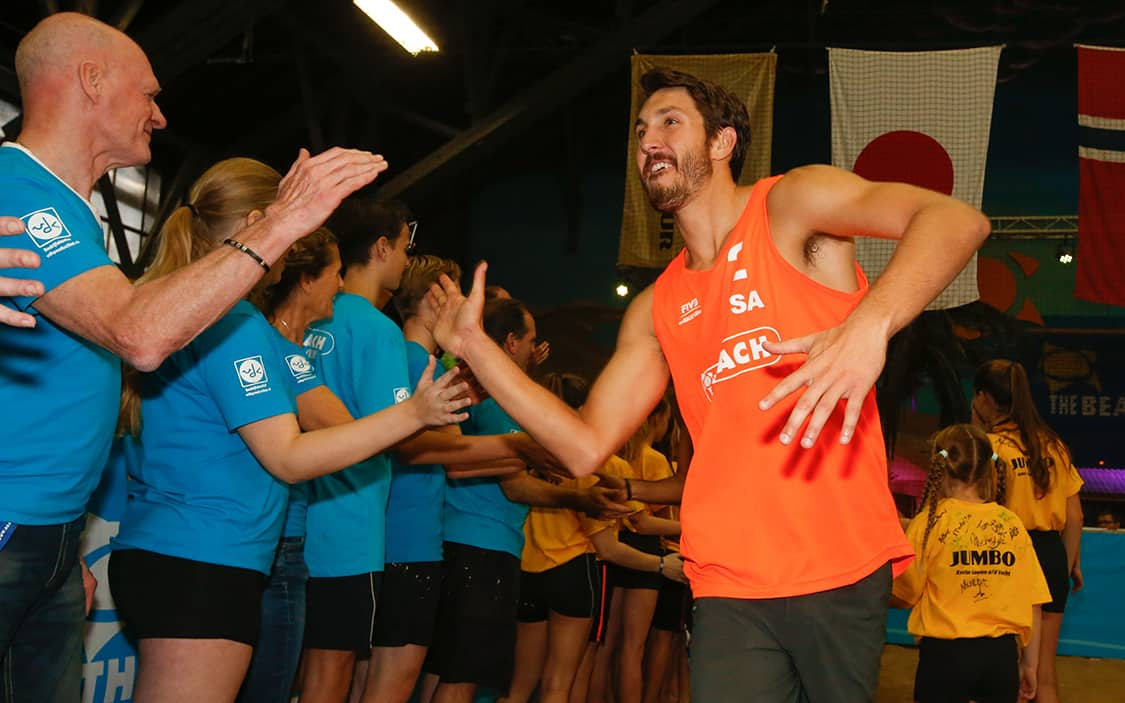
COVID-19 has forced the cancellation of many school sports, but coaches and parents can use this opportunity to help young athletes focus on giving back to their communities. Right now, with practices and competitions mostly on hold, team unity can be found through volunteer opportunities instead of games and scrimmages. Kids can learn the importance of helping others and giving back while bonding as a team so that next year, they can come back stronger than ever. Even better, research has found that volunteering can also provide a boost to mental health in these tough times.
Jamie Kay Discher, Director of Girl Experience for the Girl Scouts Heart of New Jersey has a few ideas on how your child or your team can give back this season in a safe, healthy way.
Get informed
In the Girl Scouts, volunteer opportunities aren’t just listed as things that need to be ticked off a checklist: The girls are encouraged to decide on projects that they’re passionate about, and then the leaders get involved to help with the specifics. But Discher believes that the research and decision-making is an important part of the giving back process. "Generally, the first step for anyone who's looking to perform service is to figure out what you're interested in,” says Discher. Have your team brainstorm ways that they’d like to give back. Make a list of options. Then, Discher says the second step is to make sure that you're actually filling a need in the community. For example, check with an animal shelter to see if they really need food or bedding donations before starting a collection process!
Get outside
Stream, park, and roadside cleanups are easy examples of socially distanced activities that make an impact and allow youth to spend time outside, says Discher. "We've had a lot of success coming up with safe ways for girls to perform service outside, doing things like watershed cleanups and forest regeneration projects. Those kinds of opportunities continue to be viable even while we're socially distanced.”
For your athletes, this could be as simple as doing an unofficial trash pickup during a hike in a popular park area, or you can contact your local parks and recreation department to see where the local need is greatest.
Get online
There are countless ways to take your volunteerism online. "For example, we had one girl who was doing a project to help residents living in assisted living facilities by teaching them how to protect themselves from cybercrime,” Discher says. “Obviously, when the pandemic hit, she couldn't go into those places. So, she got creative and took all the lessons that she was planning to prepare in person and recorded them as videos. Then she got the center to host the video on their TV systems so the residents could watch. She still managed to reach her target audience, she still managed to perform the service that she was looking to perform.”
Your athletes may not be ready to create a course on tackling cybercrime, but they could potentially create or teach something suited to their strengths, like virtual painting or cooking classes through a local library!
Get offline
While athletes can’t go into senior living facilities to provide comfort and entertainment, athletes can still become pen pals with people in senior centers who are craving contact with others right now. The Girl Scouts have an official national service project dedicated to this, but your team can simply contact local nursing homes and senior centers to see if there is any interest in starting a program. For younger athletes in particular, this is a great way to practice their penmanship and writing skills, Discher adds.
Get involved with citizen science service projects
“Citizen Science projects harness the idea that anyone can contribute to science research, generally using some sort of computer interface,” Discher explains. "SciStarter is a product of the National Science Foundation and has a slew of different research projects where they just need people to go look at their environment and report back to get a whole new set of data.”
The SciStarter website lets you choose your research project, and some—like this OpenSidewalks survey—can be done while running or walking. It’s a great way to help contribute to science while getting miles in for young athletes.
Takeaway
While it’s not ideal that sports have been interrupted by COVID-19, athletes can still give back to their communities in meaningful ways while practicing social distancing and other safety precautions.
About TrueSport
TrueSport® is a grassroots movement born and powered by the experience and values of USADA–the U.S. Anti-Doping Agency. The TrueSport® mission is simple and bold: to change the culture of youth sport by providing powerful educational tools to equip young athletes with the resources to build the life skills and core values for lasting success on and off the field.
